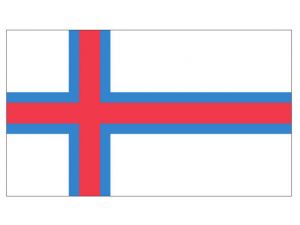Difference between revisions of "Language/Faroese/Grammar/Possessive-Pronouns"
m (Quick edit) |
m (Quick edit) |
||
| Line 98: | Line 98: | ||
<span gpt></span> <span model=gpt-3.5-turbo></span> <span temperature=1></span> | <span gpt></span> <span model=gpt-3.5-turbo></span> <span temperature=1></span> | ||
==Other Lessons== | |||
* [[Language/Faroese/Grammar/Present-Tense|Present Tense]] | |||
* [[Language/Faroese/Grammar/Verb-To-Be|Verb To Be]] | |||
* [[Language/Faroese/Grammar/Plurals|Plurals]] | |||
* [[Language/Faroese/Grammar/Question-Words|Question Words]] | |||
* [[Language/Faroese/Grammar/Questions|Questions]] | |||
* [[Language/Faroese/Grammar/Comparatives|Comparatives]] | |||
* [[Language/Faroese/Grammar/Negation|Negation]] | |||
* [[Language/Faroese/Grammar/Possessive-Adjectives|Possessive Adjectives]] | |||
* [[Language/Faroese/Grammar/0-to-A1-Course|0 to A1 Course]] | |||
{{Faroese-Page-Bottom}} | {{Faroese-Page-Bottom}} | ||
Revision as of 21:23, 2 April 2023
Possessive Pronouns
In this lesson, you will learn about Faroese possessive pronouns and how to use them to replace a noun and indicate possession. Possessive pronouns are used to show ownership or possession and are an essential part of speech in all languages. By the end of this lesson, you will be able to use Faroese possessive pronouns correctly in your sentences.
Faroese Possessive Pronouns
In Faroese, possessive pronouns are similar to possessive adjectives but replace the noun. They describe who owns or possesses something. The table below lists the Faroese possessive pronouns:
| Faroese | Pronunciation | English Translation |
|---|---|---|
| mín | mi:n | mine |
| tín | ti:n | yours (singular) |
| hans/hennar/hetta | hɔns/hɛnar/hɛta | his/hers/its |
| okkara | ɔk:ara | ours |
| tykkara | ti:k:ara | yours (plural) |
| teirra | tɛirr̥a | theirs |
Using Possessive Pronouns in Sentences
Possessive pronouns are usually used to replace a noun when we want to avoid repetition. Here is an example:
English: This is my house, and this is his house. Faroese: Hetta er mítt hús, og hetta er hans hús.
As you can see, in Faroese, there is no need to repeat the noun "house" twice. We use the possessive pronoun "mítt" (mine) and "hans" (his) to indicate ownership.
Here are more examples:
English: Her car is white, and his car is blue. Faroese: Bilurin hennara er hvítur, og bilurin hansara er bláur.
English: Our cat is black, and their cat is orange. Faroese: Kettan okkara er svørt, og kettan teirra er appelsinfarvin.
Possessive Pronouns with "ein"
When we use a possessive pronoun with the indefinite article "ein", we do not use the possessive pronoun "mín" but instead use the genitive of the personal pronoun. Here's an example:
English: I have a book. It is my book. Faroese: Eg havi ein bók. Hon er mín bók.
Notice in the second sentence, the word "mín" has been replaced by the genitive form of the personal pronoun "mín": "mínir".
Here is another example:
English: She has a bike. It is her bike. Faroese: Hon hevur ein sykli. Hann er hendara sykli.
Notice in the second sentence, the word "hendara" means "hers".
Quiz
Test your knowledge on Faroese possessive pronouns! Choose the correct possessive pronoun for each sentence below:
1. Hetta er __ bók, ikki tín. - mítt - tínar - hansara - okkara
2. Hon hevur __ kat, ikki tærkat. - mína - tín - hansara/hennara/hettara - okkara
3. __ bilurin er grønn, men __ er raudur. - Okkara/hin - Tín/hansara/hennara/hettara - Mín/hansara/hennara/hettara - Hansara/hennara/hettara/teirra
Answers: 1. mítt, 2. sína, 3. Hin/hansara/hennara/hettara, hansara/hennara/hettara/teirra.
Congratulations on completing the Faroese grammar lesson on possessive pronouns! In the next lesson, you will learn about Faroese travel vocabulary.
